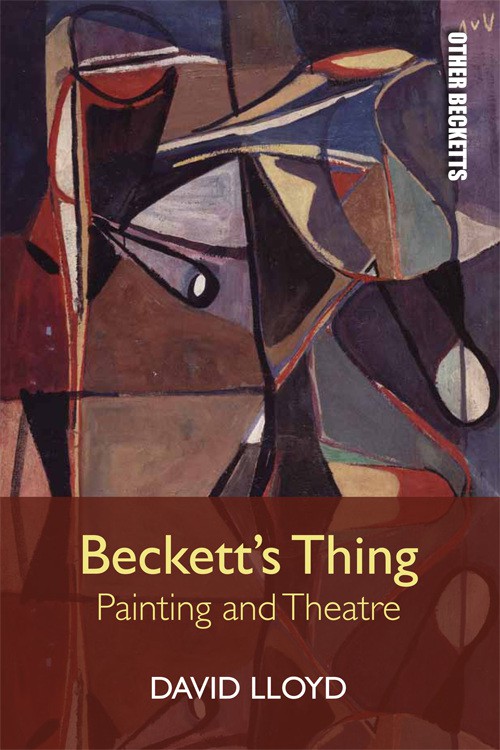
Could you tell me a little bit about yourself and your research interests?
My research revolves around modernism and post-1945 literature, and the essays and books that I have published on Beckett’s work explore its relation to politics, its historical dimensions, and its Irish and European influences. I have been working in the Department of English at the University of York for over ten years.
How did you first encounter Samuel Beckett’s writing?
I must have been about fifteen, I think, when I first heard about Beckett. A friend of mine told me about a play that she had seen in which two actors were trapped in rubbish bins, and I was intrigued! Soon after I came across copies of the early absurdist plays, in the lovely Editions de Minuit versions. I was particularly struck by Oh les beaux jours, with its memorable cover featuring Madeleine Renaud stoically holding her umbrella.
 It seemed to me remarkable that a whole play could be made to unfold from that situation, from that image. The author was of no concern to me then, but from that first reading I recall being convinced that the work dealt with colonialism and with colonial wars, and I remember seeing a very literal political dimension within it. The French texts have a peculiar texture; they refract much of what is unsaid about colonial history, and much of what is culturally unsayable about historical injustice, and I was sensitive to that. These were powerful impressions, which stayed with me thereafter. When I began to study Beckett’s work properly, many years later, I did so in light of its Irish literary and historical contexts, and my first monograph was a reappraisal of Beckett’s relation to Ireland. For me, the work is never abstract: it is inseparable from war memory and from the long colonial histories that it invokes. In a sense, this new book was a return to my first impressions: when I started researching, I worked on what is now the final chapter on Beckett and the Algerian War of Independence. (more…)
It seemed to me remarkable that a whole play could be made to unfold from that situation, from that image. The author was of no concern to me then, but from that first reading I recall being convinced that the work dealt with colonialism and with colonial wars, and I remember seeing a very literal political dimension within it. The French texts have a peculiar texture; they refract much of what is unsaid about colonial history, and much of what is culturally unsayable about historical injustice, and I was sensitive to that. These were powerful impressions, which stayed with me thereafter. When I began to study Beckett’s work properly, many years later, I did so in light of its Irish literary and historical contexts, and my first monograph was a reappraisal of Beckett’s relation to Ireland. For me, the work is never abstract: it is inseparable from war memory and from the long colonial histories that it invokes. In a sense, this new book was a return to my first impressions: when I started researching, I worked on what is now the final chapter on Beckett and the Algerian War of Independence. (more…)


